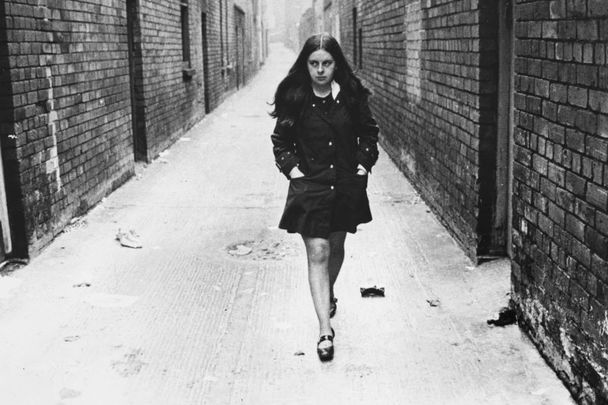Earlier this month, the Irish Film New York festival showcased a series of provocative films from Ireland, including "Bernadette: Notes on a Political Journey."
The 90-minute documentary explores the rise and evolution of Northern Ireland firebrand Bernadette Devlin, who famously rose to prominence in 1969 after the Battle of the Bogside in August which brought The Troubles to the attention of the international community.
Devlin is best known for being elected to Parliament at the ripe old age of 21 and for her ceaseless commitment to justice in the North.
What is often forgotten is that Devlin made an eventful trip to America back in 1969. She was hoping to drum up support for the cause of civil rights in Northern Ireland, just as Eamon de Valera and John Devoy had done on earlier trips to the U.S.
Instead, Devlin exposed deep rifts between Irish Catholics in America and in Ireland.
It seemed a match made in heaven. Devlin was passionate and articulate. She was a telegenic lass from the “old country” with an accent that surely charmed every third generation Irish American who heard it.
But this was 1969, arguably one of the craziest years in American history. It was a time for choosing sides.
And it turned out that Devlin and Irish Americans, more often than not, found themselves on opposite sides of the issues of the day.
Irish Americans wanted to hear about the dirty Brits and how the Protestants in the North were oppressing Irish Catholics in Belfast and Derry. Devlin, of course, was more than willing to talk about this as she visited pubs, AOH centers and Knights of Columbus halls from New York to San Francisco.
But things got complicated when Devlin broadened her definition of injustice. When she began talking about how the struggle for civil rights for African Americans in the U.S. was just as important as the fight for Catholic civil rights in the North … well, Devlin found herself on the receiving end of some cold, hard stares.
Devlin ended up criticizing Irish American kingmaker Chicago Mayor Richard Daley. Those who had initially raised money for Devlin, once they heard her controversial views, gave the money to American charities instead.
By 1969, many Irish Americans had begun questioning their centuries-old alliance with the Democratic Party. Many viewed late sixties developments from hippie culture to skyrocketing crime rates as signs of American decline.
Many Irish Americans grew increasingly conservative. They blasted liberals such as New York City Mayor John Lindsay, and some even supported segregationist George Wallace for president.
This, even as they supported radicals like Devlin in Northern Ireland.
The result?
“People who were wearing ‘Dump Lindsay’ buttons and who...had supported George Wallace for president” came out to support the radical socialist Devlin.
This description (of a Devlin fundraiser in Bay Ridge, Brooklyn) comes from one of the more fascinating reports on Devlin’s U.S. trip - a 12-page article which appeared in the January 1970 issue of Harper’s, written by Sara Davidson.
Davidson followed Devlin across America and along the way offers interesting insights, even as she unintentionally manages to offend all involved. (Was it really necessary to highlight the speech of Brooklyn Irish Americans watching Devlin’s car pass by, who comment, “Why you gotta pick dis street to come down?”)
The article culminates with a Los Angeles rally before a “schizophrenic crowd” consisting of demure white-haired Irish Americans and hippies and radicals who’d come to see the revolutionary from Ireland.
Hey, it was 1969.
Facing questions about whether or not the money she was raising would be used to fund the armed struggle, Devlin cut her American trip short in early September.
Exhausted and frustrated, Devlin apparently found that war-torn Northern Ireland was easier to handle than 1960s America.
CORRECTION: As I noted in last week’s column, Democratic Party officials initially did not accept Timothy Cardinal Dolan’s offer to say a prayer at their convention back in August. However, as numerous readers noted, Dolan eventually did visit the convention and offer a prayer. My apologies for not mentioning this.
(Contact “Sidewalks” at tdeignan.blogspot.com or [email protected])




Comments